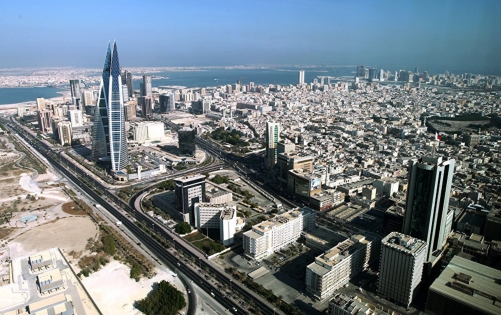Education pays off: ‘Bahrain’s non-oil sector booming’
Mohammed Darwish
TDT | Manama
The Daily Tribune - www.newsofbahrain.com
Bahrain is poised for a promising economic future, with recent forecasts predicting robust growth driven by a thriving non-oil sector and strategic investments in infrastructure and education.
The Kingdom’s efforts in diversifying its economy and improving the quality of education are beginning to bear fruit, painting a bright picture for its development in 2024 and beyond. Safaa El Tayeb El-Kogali, Country Director for the Gulf Cooperation Council (GCC), confirmed that estimates indicate an increase in Bahrain’s economic growth rate to 3.5% in 2024, driven by growth in the non-oil sector.
She noted that the hydrocarbon sector is expected to expand by 1.3% in 2024, while non-hydrocarbon sectors are anticipated to grow by about 3.9%, supported by the recovery of tourism and services, alongside ongoing infrastructure projects.
Significant progress
El-Kogali highlighted Bahrain’s significant progress in improving education quality over the past decade, as reflected in international education assessments.
Increased investment in education and human capital development can significantly contribute to long-term economic sustainability and diversification in Bahrain and the wider GCC.
Education enhances individual well-being by equipping people with skills that meet future labour market demands, leading to better job opportunities and higher wages.
Economic growth
The skills and knowledge acquired through education boost productivity, driving economic growth. Additionally, education helps build resilient economies that can adapt to changing work environments, technological advancements, and global challenges. However, the impact of education on economic growth depends on improving the skills and knowledge of the workforce. Hence, while access to education is vital, the quality of education and the skills gained are crucial for economic growth.
Education system
Reports indicate improvements in Bahrain’s education system, such as a notable increase in student performance scores on international assessments.
For instance, fourth-grade students’ achievement in mathematics and science improved by 44 points between 2011 and 2019, equivalent to 2.2 years of schooling. At the intermediate level, Bahrain has made significant progress in mathematics, achieving a level equivalent to 3.6 years of schooling, positioning it prominently among GCC countries.
However, there remains substantial scope for improvement, particularly in promoting foundational skills such as reading and arithmetic at an early age.
Labour market
These skills form the bedrock of future learning and advanced skill acquisition, which are increasingly sought after in the contemporary labour market. To continue this upward trajectory, it is essential to refine teaching practices, support comprehensive student assessments, and leverage these evaluations to enhance schools and the broader educational system.
The World Bank’s outlook for Bahrain’s economy is notably positive, with a growth rate of 3.5% projected for 2024, driven primarily by the non-oil sector. The hydrocarbon sector is expected to grow by 1.3%, while non-hydrocarbon sectors are anticipated to expand by 3.9%, buoyed by a resurgence in tourism and services and the continuation of infrastructure projects.
Future
Looking to the future, the economic growth of the GCC countries is projected to reach 2.8% in 2024, influenced by a slowdown in the oil sector, which is expected to grow by 1.7%. This trend is anticipated to reverse in 2025, with oil production predicted to rise, leading to a 4.7% increase in the region’s GDP.
The non-oil sector, however, remains resilient, with a growth rate of 3.6% forecasted for 2024 and the medium term. The prevailing uncertainty in the global economy and OPEC+ production decisions will play a significant role in shaping the economic prospects of the region.
Related Posts

